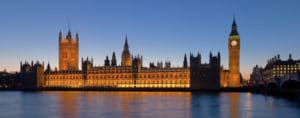The 23rd of June 2016. A day etched into people’s minds, the day that the British people decided to leave the European Union.
Nobody saw it coming. Bookmakers were betting on a “Remain” victory, and markets expected the same result, so when the results came out, investors panicked and triggered a sell-off that affected most asset classes, except for safe-haven assets such as gold, YEN, CHF and USD for example.
But officially, the UK hasn’t left the EU yet. Article 50 must be triggered first, and a two year period of negotiations will most likely follow. As investors, what should you focus on now? What should you expect? Where are the main moneymaking opportunities?
BREXIT Survival Guide: 5 Power Facts to Consider in Your Trading
1. Trigger Article 50: What does it imply?
Every European Member has the right to withdraw from the European Union. To officially do so, the UK must first trigger Article 50 from the Lisbon Treaty. Before this treaty was signed in 2007, there was no legal way for a country to leave the EU.
Without triggering Article 50, the UK is officially not allowed to start negotiations, which should last at least 2 years. If no agreement is reached within this period, the UK’s membership will end automatically, unless the European Council and the UK decide together to extend this period.
Here is the procedure to leave the European Union according to the European Parliament:

Check out: the EU’s role in BREXIT negotiations from the UK’s leading think tank promoting more effective government: the Institute for Government.
To be able to trigger Article 50, one needs to settle a withdrawal agreement – or more commonly called: “the terms of the divorce”. This agreement must set out “the arrangements for its withdrawal, taking account of the framework for its future relationship with the Union”.
Here are some examples of the issues that should be covered: the rights of European citizens living in the UK and the rights of the UK citizens living in the EU, how to allocate unspent funds that should be received, cross-border security arrangements, the closure and re-location of European agencies based in the UK, as well as others.
After this first set of negotiations, should come the negotiations around the future UK/EU relationship.
Even though some people think that future trade arrangements are the cornerstone of this second set of arrangements, a wider range of areas will also be covered, such as the requirements of financial contributions and adherence to EU laws, as well as the UK influence over EU rules and regulations.
Of course, the degree of access to the Single Market in terms of goods, services, and people, as well as business regulations are raising concerns, especially for companies. When Theresa May, the UK Prime Minister, decided to trigger article before the end of the 1st Quarter of 2017 – meaning that the UK is expecting to leave the EU by mid-2019 – everyone is anxious to hear more information and details about her plan, as she hasn’t really explained what she intends to do.
According to her, the British Government should be able to legally act alone regarding Article 50. She highlighted that the British Parliament will not be given either a vote or a “running commentary” on her exit strategy, which has raised questions surrounding the legitimacy of the Parliament in the BREXIT process. What role should the Parliament then have? Does Theresa May have the right to initiate the BREXIT without consulting Parliament?

2. Scrutinising BREXIT: Why the Parliament should have a word
A legal battle is currently being fought in London’s High Court on whether Theresa May is allowed to trigger Article 50 without Parliament authorisation. It brings into focus the issue of who actually has the authority to trigger the exit process: the Government or Parliament? Another question being debated is whether or not the Government should reveal its BREXIT plans before negotiations begin for Parliament approval.
As can be read in some publications from the Authority of the House of Lords: “the Parliament has a duty to scrutinise and hold the Government to account for decisions that will profoundly affect the United Kingdom.” The way BREXIT negotiations are going to be held will have a huge impact on the UK economy, as well as on the well-being of its population. Parliament isn’t looking to micromanage the negotiations, but rather to be sure the Government takes the necessary time to get it right.
To be able to play a constructive role in this extremely difficult situation, Parliament should be able to monitor and follow the Government’s negotiating objectives, and make comments on how they are conducted to try to get the best outcome possible for the UK. Of course, it’s understandable that the Government needs room to manoeuvre, but it’s not a reason to completely exclude the Parliament from negotiations.
Theresa May wants the Members of Parliament (MPs) to play an important role in the negotiations, but she is also clear on the fact that she won’t allow any vote on how or when the divorce with EU should happen. She only agrees on a debate. But Parliament scrutiny will certainly contribute to a more solid and cohesive decision, strengthening the Government’s credibility and negotiation position, as well as increase public support.
Of course, pro-EU campaigners will claim that Article 50 shouldn’t be triggered without Parliament backing. Investors are aware that this could be a game-changer in the negotiations, as some MPs are against the BREXIT, which could lead to a smoother transition. We already know that trade and immigration, which were two of the main themes of the referendum campaign, will be the dominant themes during the negotiations.
How close to the EU will the UK remain? Theresa May keeps on saying that “Brexit means Brexit”. She seems to prefer prioritizing immigration control of Britain’s border over targeting access to EU’s Single Market. It’s also clear that she wants the broadest possible access to the EU’s Single Market, while keeping control over immigration. She she may have trouble getting her way, as the European Single Market promotes the “four freedoms” within the EU: free movement of goods, services, people and capital together.
Theresa May seems to be heading towards a “hard BREXIT” by wanting to place limits on immigration – in doing so, she will almost certainly lose access to Europe’s Single Market.

This article has been written before the High Court decision of the 3rd of November. According to The New York Times: “The British government must consult Parliament before proceeding with formal negotiations over its withdrawal from the European Union, the High Court ruled on Thursday, a move that is likely to aggravate the political uncertainty surrounding the country’s exit from the bloc.”
3. Hard BREXIT vs Soft BREXIT: What you should know
There are a lot of possible post-EU arrangements that the UK could adopt. The options are the following:
- the membership of the European Economic Area (EEA): the ‘Norway model’;
- the membership of the European Free Trade Agreement (EFTA) plus bilateral deals: the ‘Swiss model’;
- the bilateral free trade agreement, such as the Canadian or Singaporean models;
- the membership of the World Trade Organization (WTO).
Of course, these are not the only future relationship options for the UK/EU. It’s also possible that the UK will decide to combine different aspects of the above models. As we highlighted above, the UK want to target a high degree of access to the EU’s Single Market in regards to goods and services, while limiting movement of people.
But let’s not forget that the EU Council, the European Parliament, and the member states all have to agree on a deal before it is put into action, and it’s been often said that access to the Single Market “requires acceptance of all four freedoms”.
What worries investors are the rising hard BREXIT talks, as the French President said at the beginning of October: “if Madame Theresa May wants a hard Brexit, then talks will be hard too”.

A so-called hard BREXIT characterizes a situation where the UK seeks a solution that would offer a higher break with the EU, meaning seeking control over immigration instead of access to the EU Single Market. This would probably imply that the UK would be part of the World Trade Organisation to trade with its EU partners. UK exports will then face tariffs. On the other side, the UK would not have to pay contributions to Brussels, or to sign-up to free movement laws.
Opposed to the hard BREXIT is the soft BREXIT option, which should leave the UK/EU relationship as close as possible to the existing arrangements, such as the three EEA EFTA States: Norway, Iceland and Lichtenstein. Of course, the UK would not be part of the EU anymore, but it would still have full access to the Single Market, because it will be a member of the EEA. On the other hand, the UK must accept the “four freedoms” within the EU, including the free movement of people, participate in the EU budgets, and respect EU laws.
Whatever option the UK is going to choose, this new UK/EU relationship will take time, and will be agreed on in 2 stages: ratifying the deal and implementing it. First, the deal must be agreed by the Council of the European Union, and approved by a European Parliament simple majority vote from the 27 EU member states. The deal then needs to be ratified by the UK Parliament.
4. UK financial sector in jeopardy: How a hard BREXIT will hurt The City
The financial sector (banks and insurance) contributed about 7.4% of the UK GDP in 2014, with 4.3% coming from banks. The UK has about 250 foreign banks from more than 56 countries.
At the end of 2014, 416,600 people were employed in the UK in the banking sector. This country is a major player on several key market segments in the European Union, particularly in the foreign exchange market (78% of transactions) and interest rate derivatives and swaps (74% of transactions).
The big British banks dominate the retail market, but they are competing for the investment bank market with foreign institutions based in London. The five largest US banks (Goldman Sachs, JP Morgan Chase, Bank of America, Citigroup and Morgan Stanley) have their European headquarters in London, and employ around 40,000 people.
The banking sector is particularly important in London, because the City is one of the largest financial centres in the world. At the end of 2014, 143,000 people are employed in the banking sector in London. The City manages 20% of worldwide hedge funds assets, 85% of European hedge funds assets, and 45% of the OTC market. London controls 60% of European financial transactions.
For the financial sector, the BREXIT is a real challenge. The City interacts mainly with the European Union: 41% of financial services exports go to the EU, compared to 26% for the USA and 2% for China and Hong Kong.
In addition, a hard BREXIT could force British banks offering their services throughout the European Union to outsource jobs on the continent to continue to practice there, because their activities will no longer enjoy the benefits of the European passport.
The European passport assured them until now direct access to the markets of the EU countries. Today, many of the financial institutions used the City as a gateway to enter the financial European market. The BREXIT takes away London’s role of gateway to the European Union.
While the UK is not yet out of the European Union, many European financial centres (Paris, Frankfurt, Amsterdam…) are trying to attract financial institutions looking for the European passport. But, the fear of high tariffs and loss of free trade related to finance in the European Union are the main concern of the British government.
London is now threatening to introduce a 10% corporation tax rate to prevent the European Union from removing the passport from European banks. The negotiations are just beginning, but it is clear that the UK does not want to let anyone walk all over it.
5. Fall of the British currency: winners and losers
After the decision on the 23rd of June, volatility increased sharply, especially on the FOREX market. In the face of so many financial and economic uncertainties in the future, investors heavily invested on safe-haven currencies such as the Japanese (YEN), the Swiss Franc (CHF) and the American Dollar (USD).
After the BREXIT, the pound (GBP) lost more than 15% of its value, and still remains very weak. It’s certainly beneficial for export reliant companies, though it penalizes consumption of imported products. This fall resulted in a loss of income for the importing companies, who have largely decided to increase prices to make up for the shortfall. Microsoft announced that prices for their enterprise software would increase by 13%, while prices of its cloud service would increase by 22%. You can find similar examples with Apple (between 3% and 10%), PC Asus (+9%), Dell (+10%), HP (+10%), Peugeot (+2%), Ford (+1,5%), Suzuki (+2%).
GBP/USD is down about 19%, while GBP is down about 17% on the Euro. The fall against the EUR is even more important for the UK, as more than 40% of its commercial trades is done with the EU.

Every crisis brings both risks and opportunities. Thanks to volatility, which is the size of change in an asset’s value, you can take advantage of a reversal in the main trend. In any case, remember to always try your FOREX strategy before starting to trade and keep in mind the big picture.
Happy Trading!








Leave a Reply